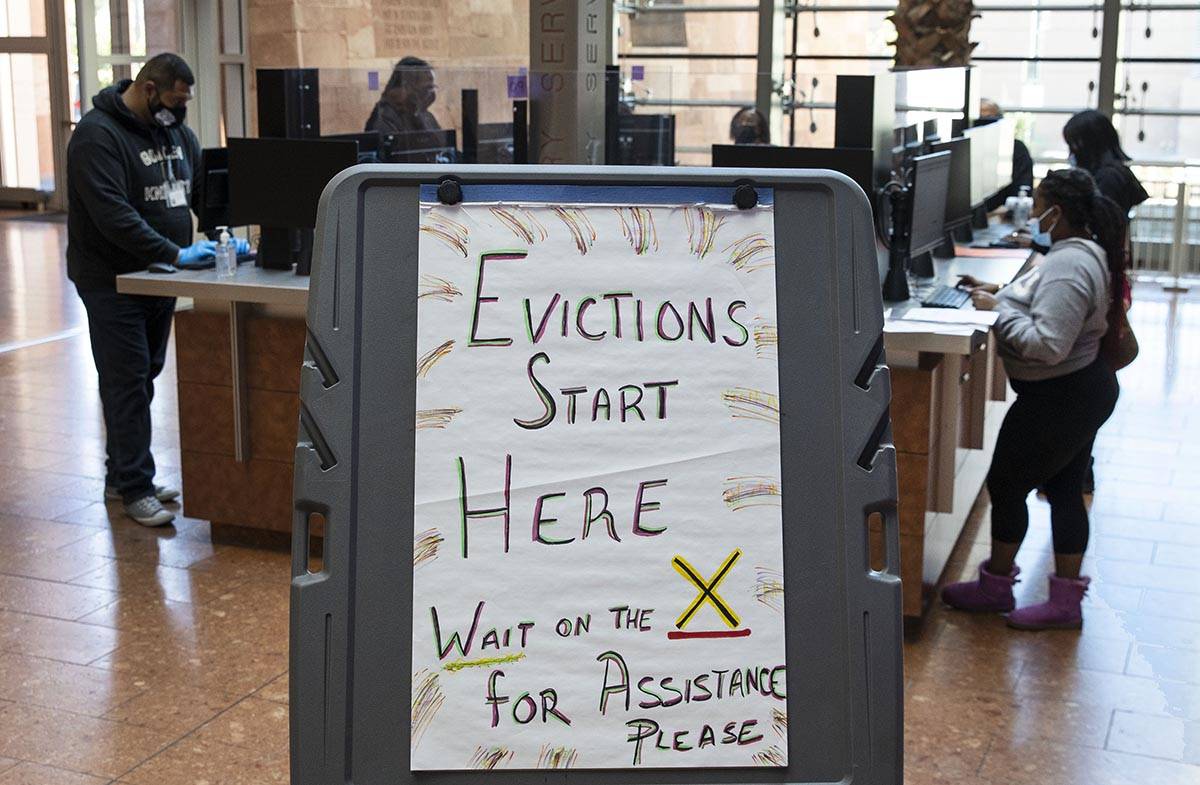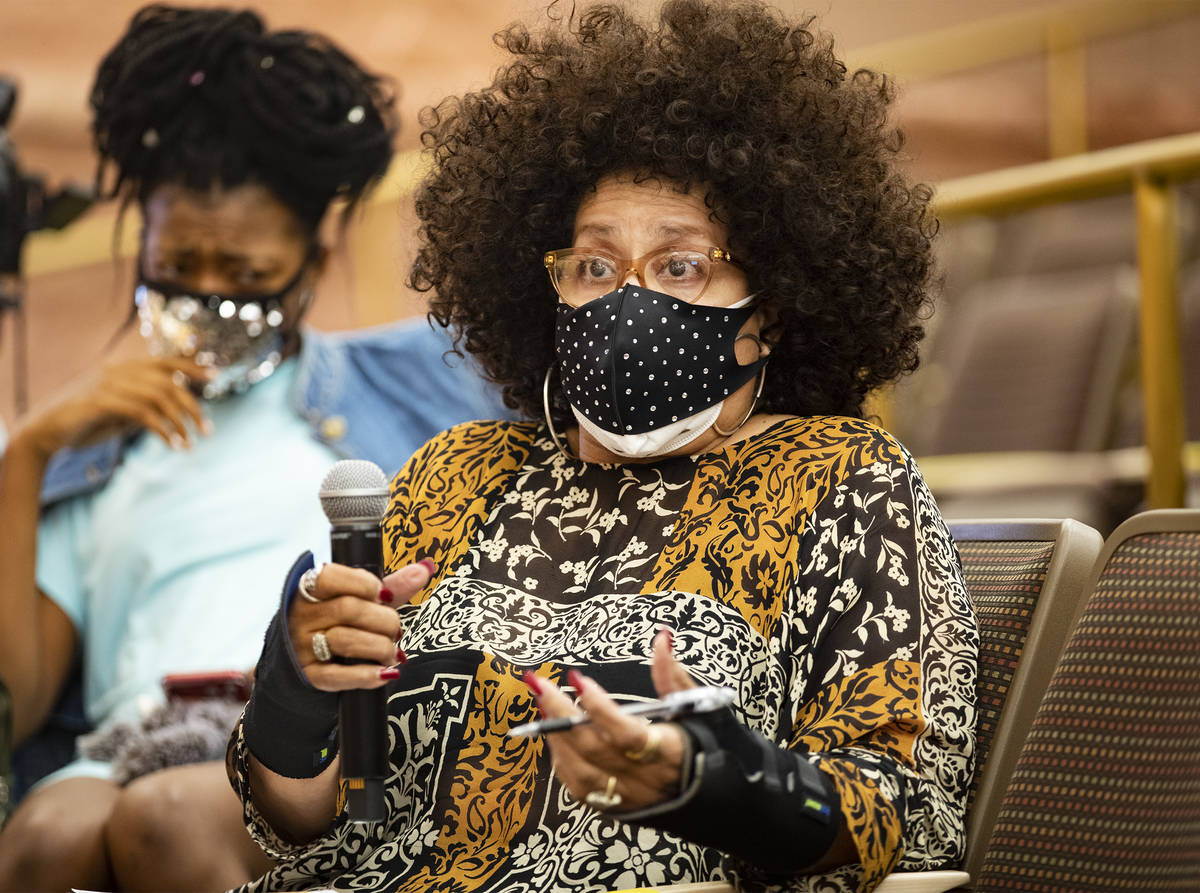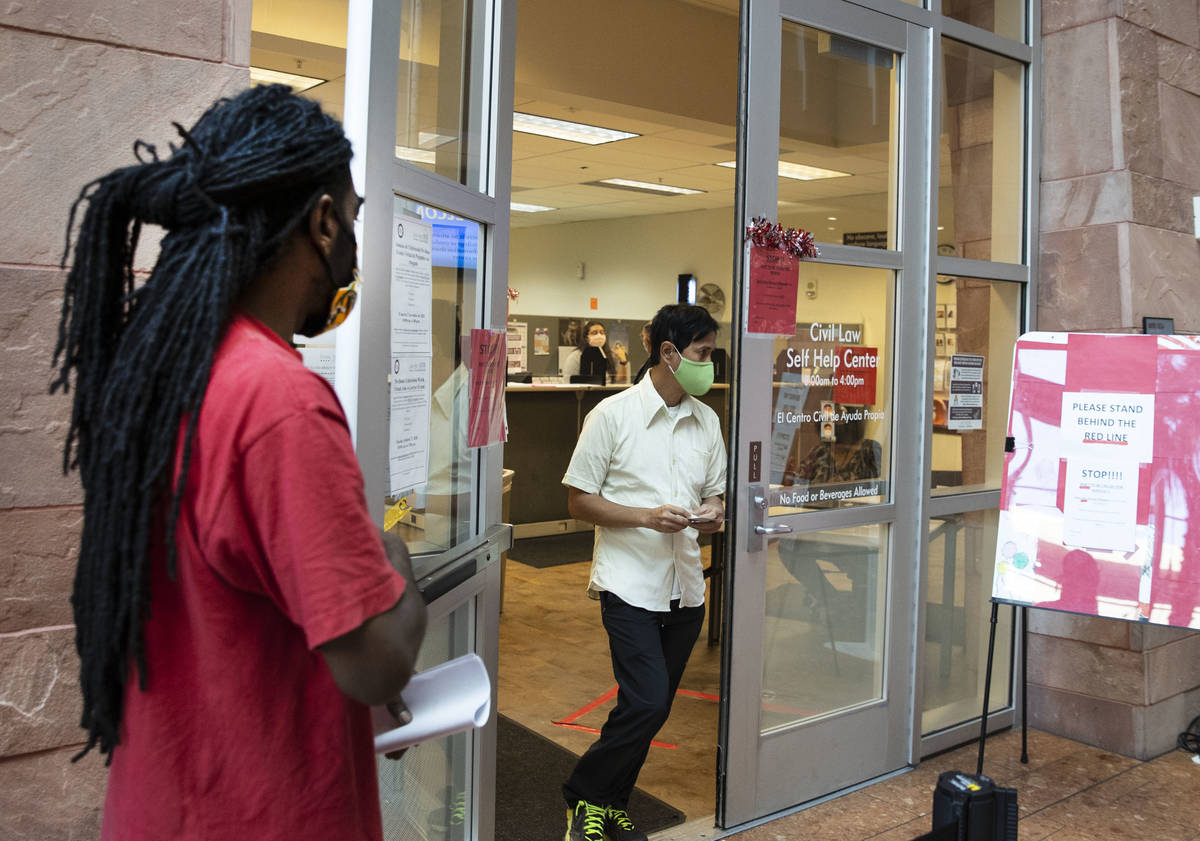State eviction ban means relief for renters, new strain for landlords
Two weeks ago, Pamela Pierce burst into tears when she found an eviction notice on her front door.
The 65-year-old worked as a substitute teacher before being laid off March 19. It took six months before her unemployment payments started coming in, causing her to fall behind on rent payments.
Now, Pierce and many other Nevada renters are protected from being evicted at the state level once again. Gov. Steve Sisolak said Sunday that he would sign a directive that will place a moratorium on “most residential evictions in Nevada” between Dec. 15 and the end of March.
“I feel better with (the moratorium) because where am I going to go at 65?” Pierce said. “They want you to stay in, but nobody’s going to pay your rent or take care of you. There’s no money.”
Relief
Nevada’s first eviction moratorium was lifted Oct. 15, and a federal residential eviction moratorium, which requires tenants to opt in, is set to end Dec. 31.
“Given that a new study shows that evictions are associated with increases in COVID-19 incidence and mortality rates … the new moratorium recognizes that housing is health care and makes enormous strides in protecting Nevadans’ well-being,” Nancy Brune, founding executive director of the Guinn Center, a statewide policy research center, said.
Bailey Bortolin, policy director for the Nevada Coalition of Legal Service Providers, said she was “extremely relieved” to learn about the extended moratorium.
The state is in an “eviction crisis,” she said.
According to the U.S. Census Bureau’s most recent Household Pulse Survey conducted Nov. 11-23, roughly 35 percent of renter households in Nevada that are not current on rent payments were at least somewhat likely to be evicted within the next two months.
“Every day was (worse) than the last as families came to the courthouse with suitcases and nowhere to go,” Bortolin said via email.
The newest moratorium does not relieve renters from their obligations to pay rent, and it does not prohibit certain evictions not related to the pandemic.
Concern for landlords
Sisolak said he recognizes that the extension is unwelcome for some landlords.
“I know I’ve asked landlords to sacrifice during this pandemic, and I am asking you again to do so for a few more months as we push through what I hope is the last surge of this virus,” the governor said Sunday.
Susy Vasquez, the executive director of the Nevada State Apartment Association, worries that the new moratorium will force smaller landlords to foreclose.
“We were very surprised to hear the moratorium extending to March 31,” she said. “Small landlords will definitely be impacted the most.”
Clark County and the state still have funds from the Coronavirus Aid, Relief, and Economic Security Act available to provide rental assistance, but Sisolak said those programs may come to an end soon, given that they are supported with federal assistance dollars that expire at the end of the year.
As of Dec. 1, the Clark County CARES Housing Assistance Program, or CHAP, has assisted more than 6,000 households with $25 million in housing aid, including rent, utilities and mortgage payments.
A ‘first step’ for renters
Pierce, who lives at an apartment complex east of the Strip called Las Vegas Grand Apartments, said the eviction moratorium was positive news, but worries what will happen come April.
CHAP has covered some of her rent payments, but she hopes rent forgiveness will be offered in the coming months, especially given that Wednesday is set to be the last time she receives unemployment insurance benefits.
“Even though he stretched the moratorium to March (31), it doesn’t mean your bills go away. You need more than that,” she said. “When March comes, I owe back pay (in rent) again and the problems are the same as before.”
A representative for Las Vegas Grand Apartments could not be reached for comment late Sunday.
LaLo Montoya, political director of Make The Road Nevada, said the moratorium was saving lives in Nevada, and is especially big news for those in the local Latino community who have been hit hard by the pandemic and the economic crisis.
Still, Montoya views the newest renter protection as a “first step” and believes the federal government will need to take further action to protect renters by directing money to local governments and issuing another federal moratorium.
“The cards are stacked against tenants here in Nevada,” he said.
Contact Bailey Schulz at bschulz @reviewjournal.com. Follow @bailey_schulz on Twitter.













































